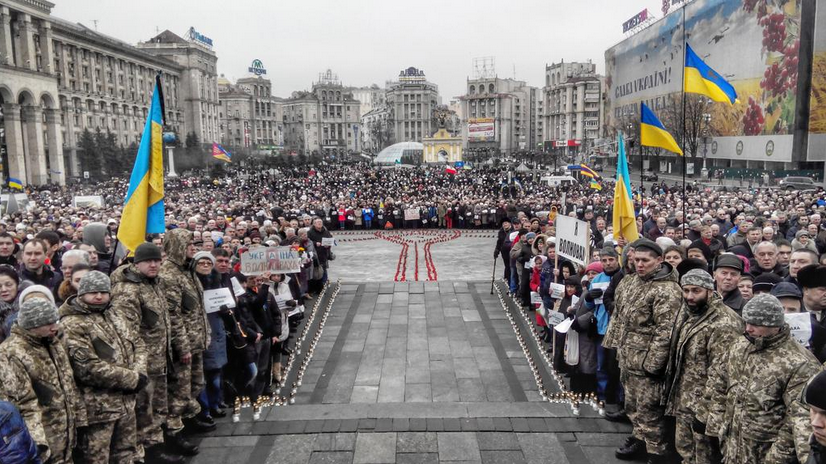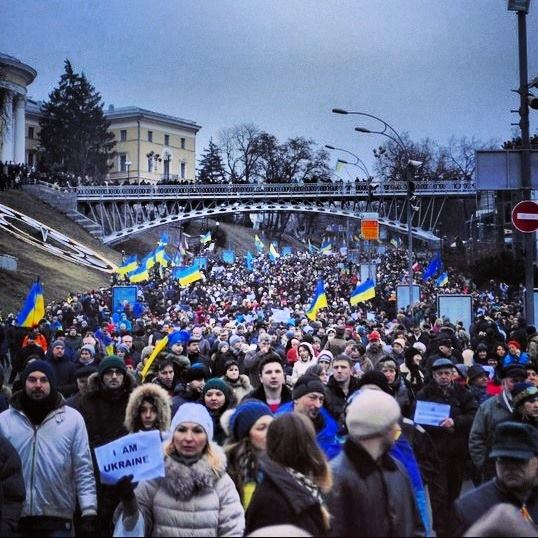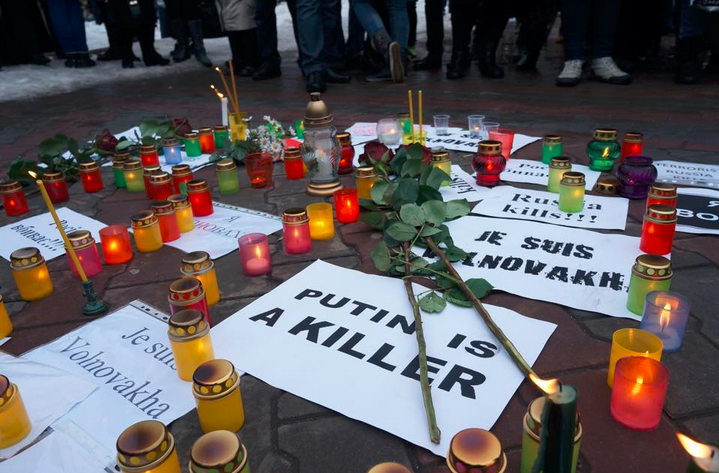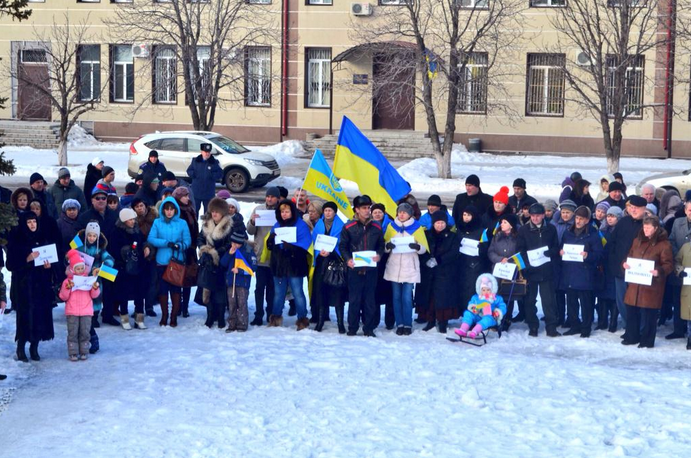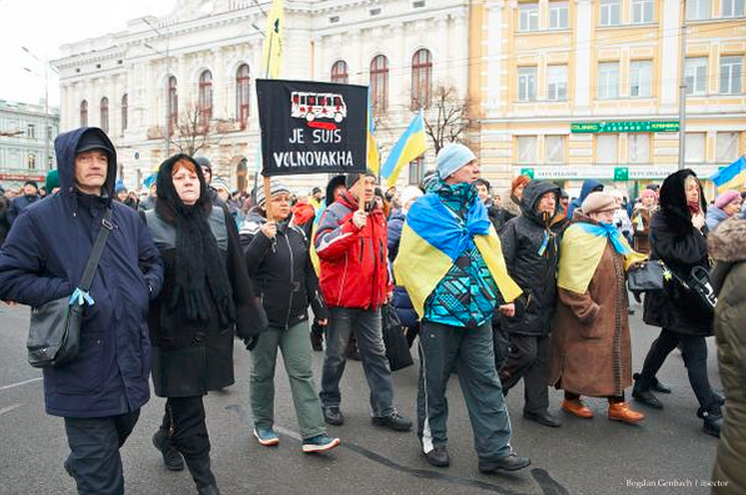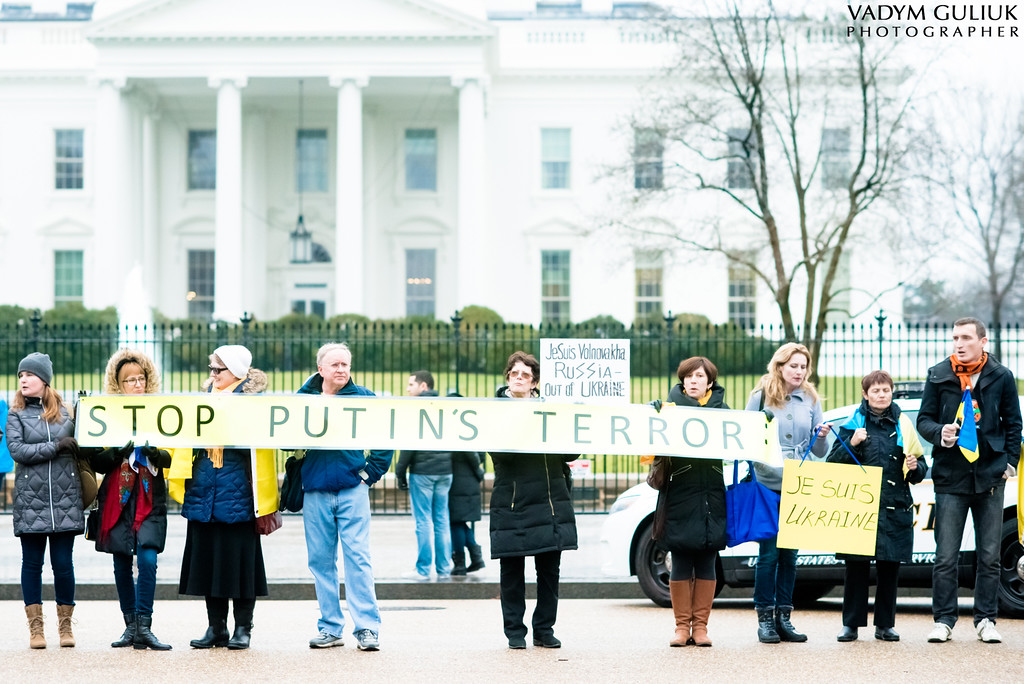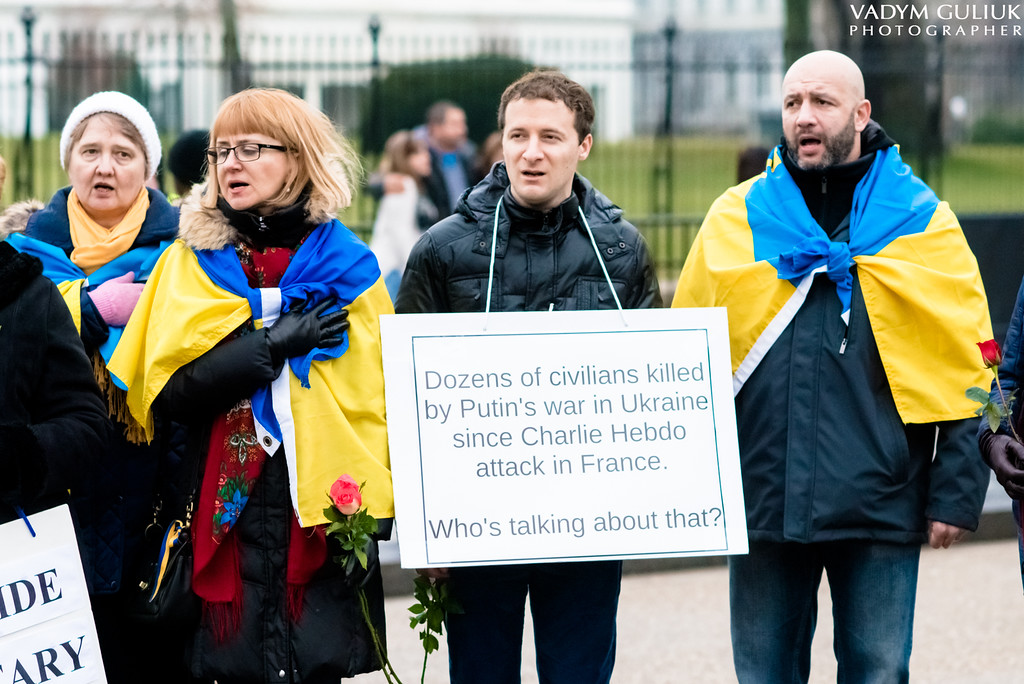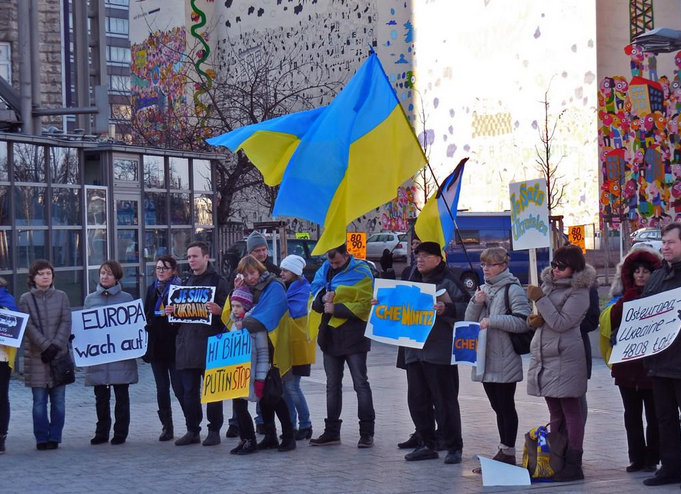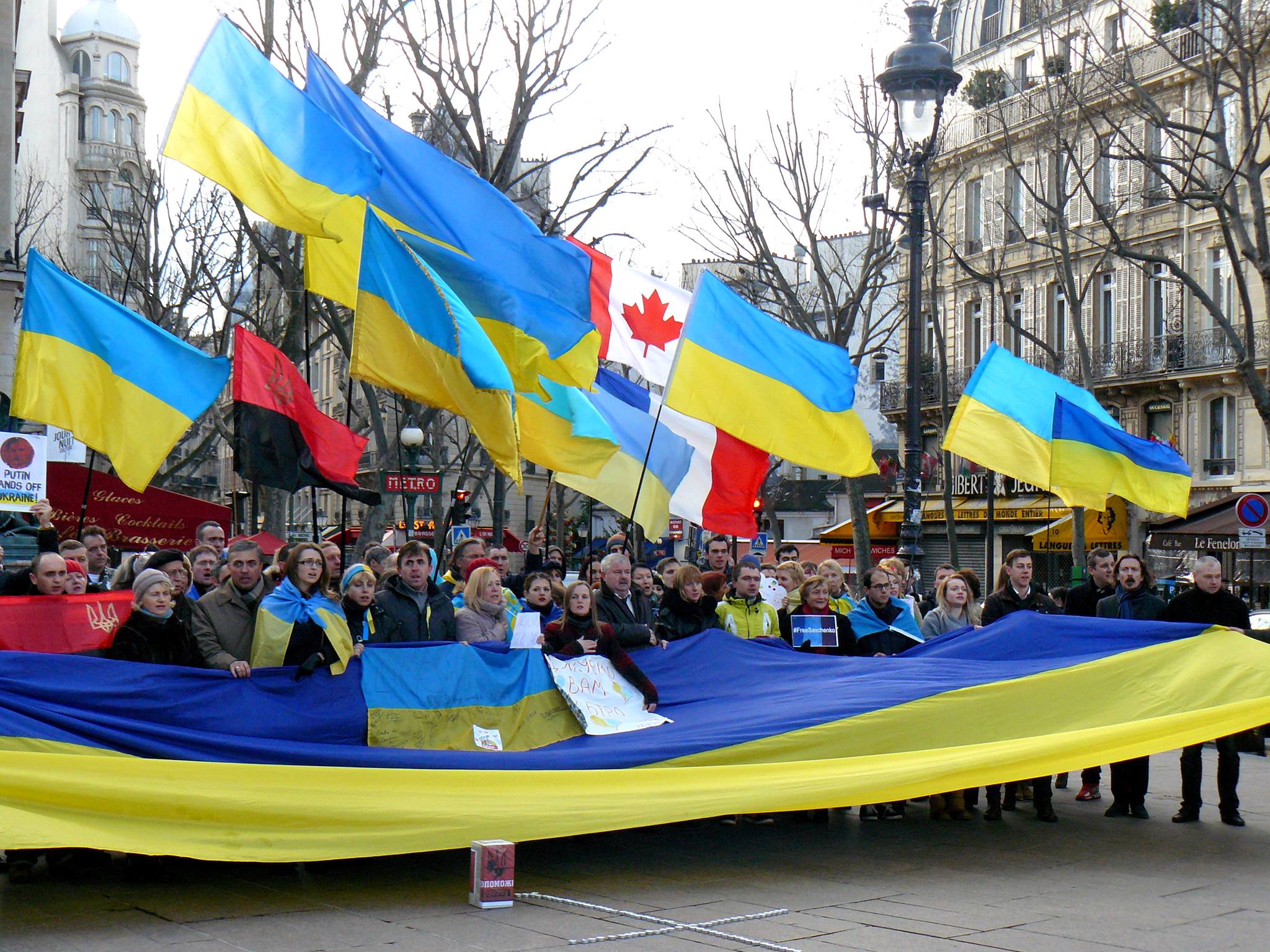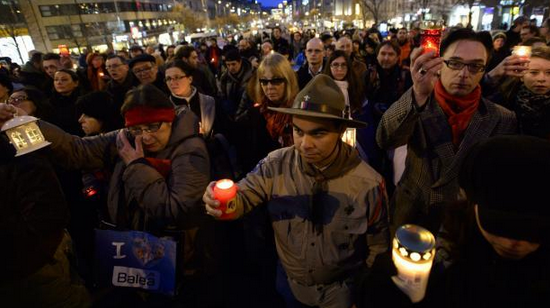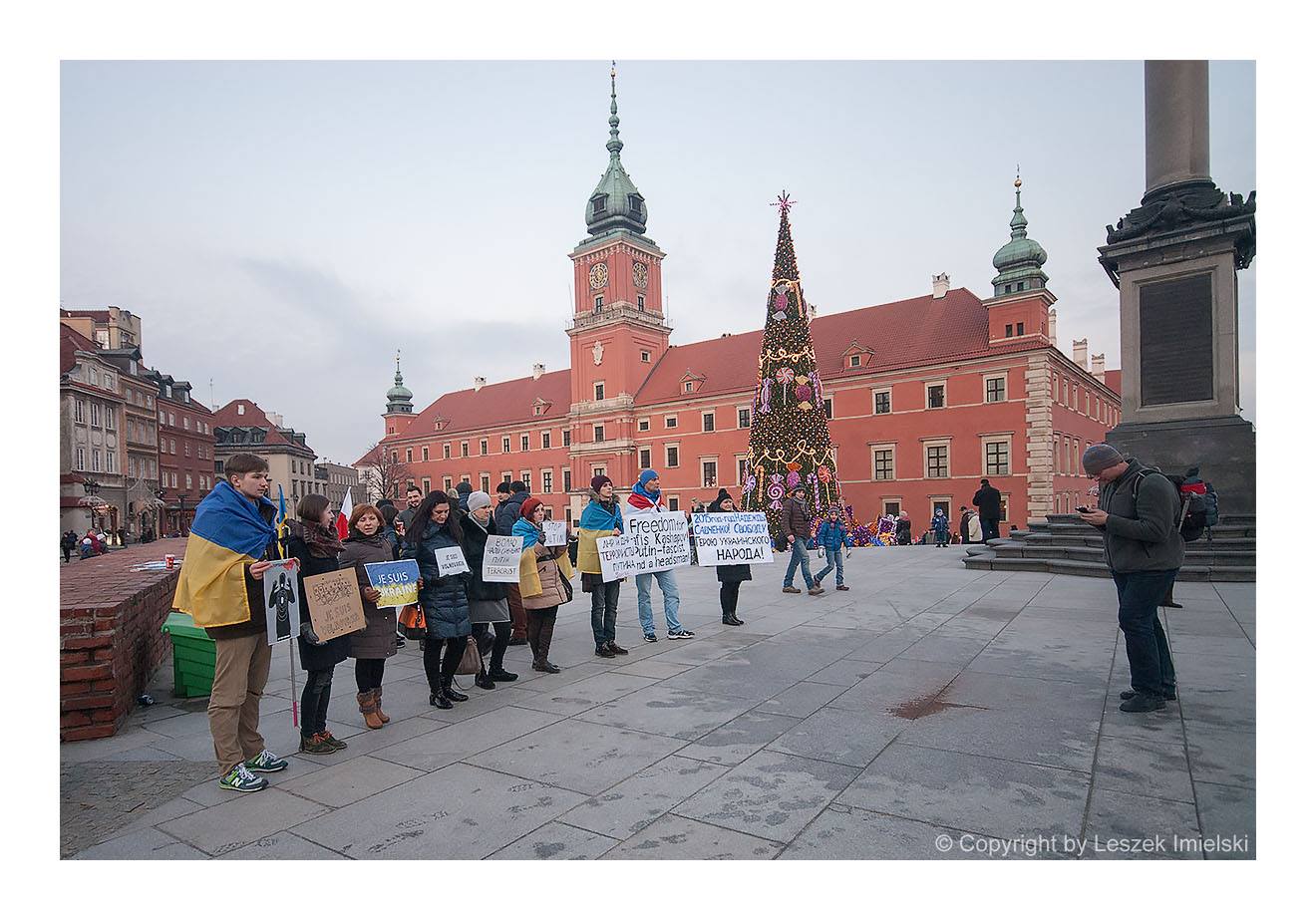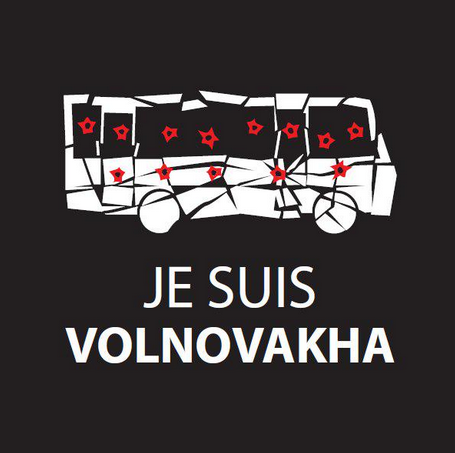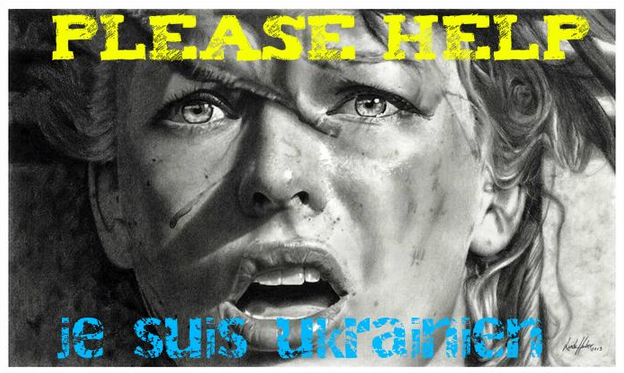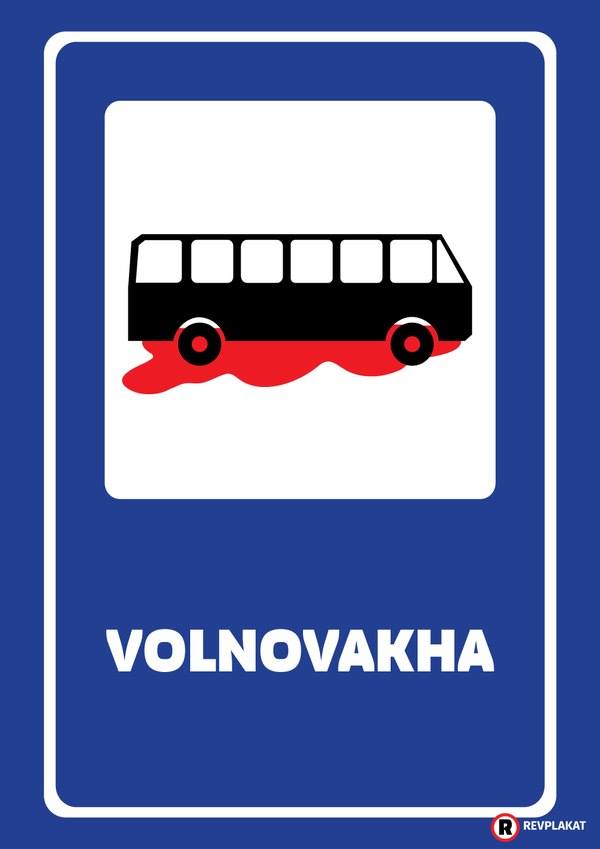On 18 January 2015, people in 50 cities from 18 countries came out to rally against Russian terrorism in Ukraine. The worldwide rally was sparked by a shelling of a civilian bus near the eastern Ukrainian city of Volnovakha from territory occupied by pro-Russian militants that took place on January 15 and killed 13 civilians. Taking place under the the hashtags #JeSuisVolnovaha and #JeSuisUkraine, it compares the January 11 terrorist attack on the Charlie Hebdo satirical magazine in Paris, which trended in the internet under #JeSuisCharlie, to the everyday killings of civilians in Donbas which go unnoticed by the western media. A ceasefire regime established on September 5 is violated by Russian-backed militants on an everyday basis, leading to everyday deaths of people. On January 18 another civilian bus was shelled, this time in Dokuchaivsk, killing one and wounding eight. Supporters of Ukraine around the world gathered to honor the memory of the victims and to demand a reaction to the Russian-fueled terror in Ukraine (click on the cities to go to the event).
In Kyiv the rally gathered 15 000 people according to the estimates of the MIA.
At least 20 other Ukrainian cities supported the call, demanding to stop Russian terrorism in Ukraine.
The call spread to Euromaidans not only in Ukraine, but around the world. Over the last year, communities of Ukrainians supporters in different countries have been bringing attention to Russia’s aggression in Ukraine. On January 18 they demanded from the international community to announce the self-proclaimed Luhansk and Donetsk “People’s republics” (LNR and DNR) terrorist organizations.
Russians in Moscow also gathered to support the Volnovaha rally, but were not able to even place a Ukrainian flag at the Ukrainian embassy. The security made them remove it, threatening with arrests.
Holding placards on unsanctioned rallies is forbidden in Russia, the exception being single protests, so the protesters brought only candles and flowers. The protest laws have gotten much stricter starting from the summer of 2013. Recently, the civic activist Mark Galperin was sentenced for 38 days for a protest with a JeSuisCharlie sign, being accused of violating public order.
This isn’t the first time Euromaidans of the world hold joint actions to protest against Russia’s invasion of Ukraine. The event Funeral wreaths for Ukrainian soldiers took place in 12 cities worldwide on 21 June 2014, Protests against the Mistral deal gathered 18 cities from 13 countries on 14 July 2014, and the Global Peace March against Russian aggression on 21 September 2014 – 59 cities in 27 countries. Under the symbol of a civilian bus drenched in blood, citizens around the world called upon the international community to take a firmer stance against Russian terrorism. While the world has condemned the shelling of the bus under Volnovaha, it is in no hurry to blame the terrorists for it.
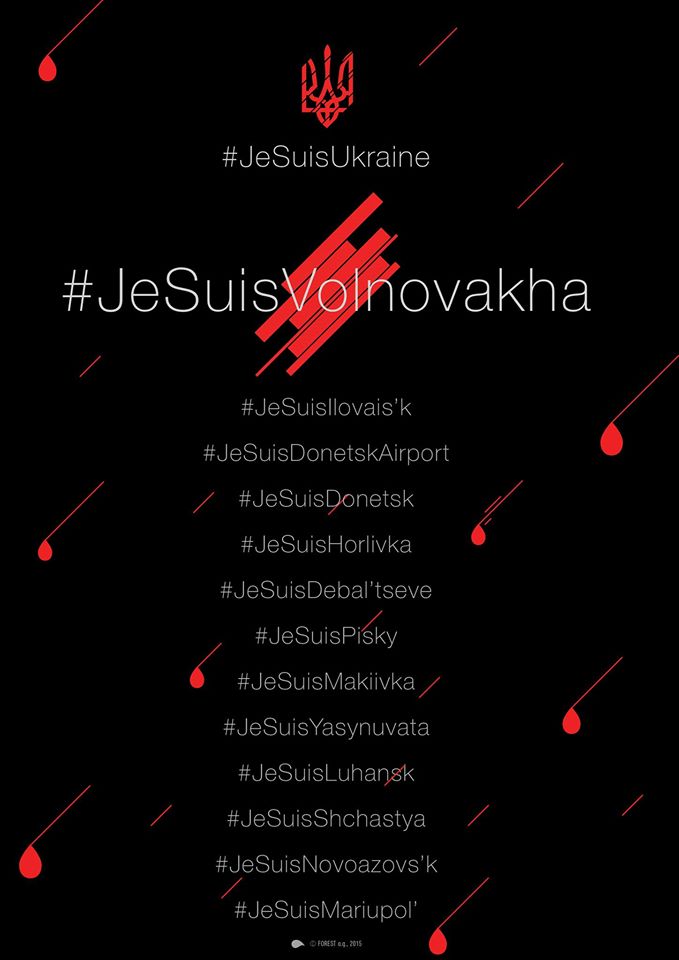
#JeSuisVolnovaha isn’t about only the tragic bus shelling in under Volnovaha. Every day in Ukraine, civilians and Ukrainian servicemen get killed in a Russian-instigated and fueled conflict that takes the lives of not only Ukrainians, but Russian soldiers. According to Putin, they were never in Ukraine, but online communities are making databases with identities of Russian soldiers KIA in Ukraine. The death toll estimates for both the Ukrainian and Russian side reach 11 500.
On December 6, Ukraine’s PM Arseniy Yatsenyuk announced that Ukraine has begun a lawsuit against Russia for violating the UN convention on terrorism by financing it. Russia has been accused on multiple occasions for providing arms and military equipment to the militants in Ukraine, as well as having its troops taking part in combat against the Ukrainian army. Apart from that, the Russian special services have been involved in organizing terrorist acts inside Ukraine.





